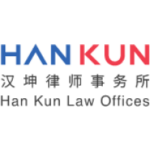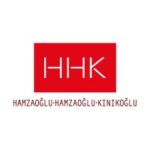-
Software – How are proprietary rights in software and associated materials protected?
-
Software – In the event that software is developed by a software developer, consultant or other party for a customer, who will own the resulting proprietary rights in the newly created software in the absence of any agreed contractual position?
-
Software – Are there any specific laws that govern the harm / liability caused by Software / computer systems?
-
Software – To the extent not covered by (3) above, are there any specific laws that govern the use (or misuse) of software / computer systems?
-
Software Transactions (Licence and SaaS) – Other than as identified elsewhere in this overview, are there any technology-specific laws that govern the provision of software between a software vendor and customer, including any laws that govern the use of cloud technology?
-
Software Transactions (License and SaaS) – Is it typical for a software vendor to cap its maximum financial liability to a customer in a software transaction? If ‘yes’, what would be considered a market standard level of cap?
-
Software Transactions (License and SaaS) – Please comment on whether any of the following areas of liability would typically be excluded from any financial cap on the software vendor’s liability to the customer or subject to a separate enhanced cap in a negotiated software transaction (i.e. unlimited liability): (a) confidentiality breaches; (b) data protection breaches; (c) data security breaches (including loss of data); (d) IPR infringement claims; (e) breaches of applicable law; (f) regulatory fines; (g) wilful or deliberate breaches.
-
Software Transactions (License and SaaS) – Is it normal practice for software source codes to be held in escrow for the benefit of the software licensee? If so, who are the typical escrow providers used? Is an equivalent service offered for cloud-based software?
-
Software Transactions (License and SaaS) – Are there any export controls that apply to software transactions?
-
IT Outsourcing – Other than as identified elsewhere in this questionnaire, are there any specific technology laws that govern IT outsourcing transactions?
-
IT Outsourcing – Please summarise the principal laws (present or impending), if any, that protect individual staff in the event that the service they perform is transferred to a third party IT outsource provider, including a brief explanation of the general purpose of those laws.
-
Telecommunications – Please summarise the principal laws (present or impending), if any, that govern telecommunications networks and/or services, including a brief explanation of the general purpose of those laws.
-
Telecommunications – Please summarise any licensing or authorisation requirements applicable to the provision or receipt of telecommunications services in your country. Please include a brief overview of the relevant licensing or authorisation regime in your response.
-
Telecommunications – Please summarise the principal laws (present or impending) that govern access to communications data by law enforcement agencies, government bodies, and related organisations. In your response, please outline the scope of these laws, including the types of data that can typically be requested, how these laws are applied in practice (e.g., whether requests are confidential, subject to challenge, etc.), and any legal or procedural safeguards that apply.
-
Mobile communications and connected technologies – What are the principle standard setting organisations (SSOs) governing the development of technical standards in relation to mobile communications and newer connected technologies such as digital health or connected and autonomous vehicles?
-
Mobile communications and connected technologies – How do technical standards facilitating interoperability between connected devices impact the development of connected technologies?
-
Data Protection – Please summarise the principal laws (present or impending), if any, that govern data protection, including a brief explanation of the general purpose of those laws.
-
Data Protection – What is the maximum sanction that can be imposed by a regulator in the event of a breach of any applicable data protection laws?
-
Data Protection – Do technology contracts in your country typically refer to external data protection regimes, e.g. EU GDPR or CCPA, even where the contract has no clear international element?
-
Cybersecurity – Please summarise the principal laws (present or impending), if any, that govern cybersecurity (to the extent they differ from those governing data protection), including a brief explanation of the general purpose of those laws.
-
Cybersecurity – What is the maximum sanction that can be imposed by a regulator in the event of a breach of any applicable cybersecurity laws?
-
Artificial Intelligence – Which body(ies), if any, is/are responsible for the regulation of artificial intelligence?
-
Artificial Intelligence – Please summarise the principal laws (present or impending), if any, that govern the deployment and use of artificial intelligence, including a brief explanation of the general purpose of those laws.
-
Artificial Intelligence – Are there any specific legal provisions (present or impending) in respect of the deployment and use of Large Language Models and/or generative AI (including agentic AI)?
-
Artificial Intelligence – Do technology contracts in your jurisdiction typically contain either mandatory (e.g. mandated by statute) or recommended provisions dealing with AI risk? If so, what issues or risks need to be addressed or considered in such provisions?
-
Artificial Intelligence – Do software or technology contracts in your jurisdiction typically contain provisions regarding the application or treatment of copyright or other intellectual property rights, or the ownership of outputs in the context of the use of AI systems?
-
Blockchain – What are the principal laws (present or impending), if any, that govern (i) blockchain specifically (if any) and (ii) digital assets, including a brief explanation of the general purpose of those laws?
-
Search Engines and Marketplaces – Please summarise the principal laws (present or impending), if any, that govern search engines and marketplaces, including a brief explanation of the general purpose of those laws.
-
Social Media – Please summarise the principal laws (present or impending), if any, that govern social media and online platforms, including a brief explanation of the general purpose of those laws?
-
Social Media – What is the maximum sanction that can be imposed by a regulator in the event of a breach of any applicable online safety laws?
-
Spatial Computing – Please summarise the principal laws (present or impending), if any, that govern spatial computing, including a brief explanation of the general purpose of those laws?
-
Quantum Computing – Please summarise the principal laws (present or impending), if any, that govern quantum computing and/or issues around quantum cryptography, including a brief explanation of the general purpose of those laws?
-
Datacentres – Does your jurisdiction have any specific regulations that apply to data centres?
-
General – What are your top 3 predictions for significant developments in technology law in the next 3 years?
-
General – Do technology contracts in your country commonly include provisions to address sustainability / net-zero obligations or similar environmental commitments?
United Arab Emirates: TMT
This country-specific Q&A provides an overview of TMT laws and regulations applicable in United Arab Emirates.
















